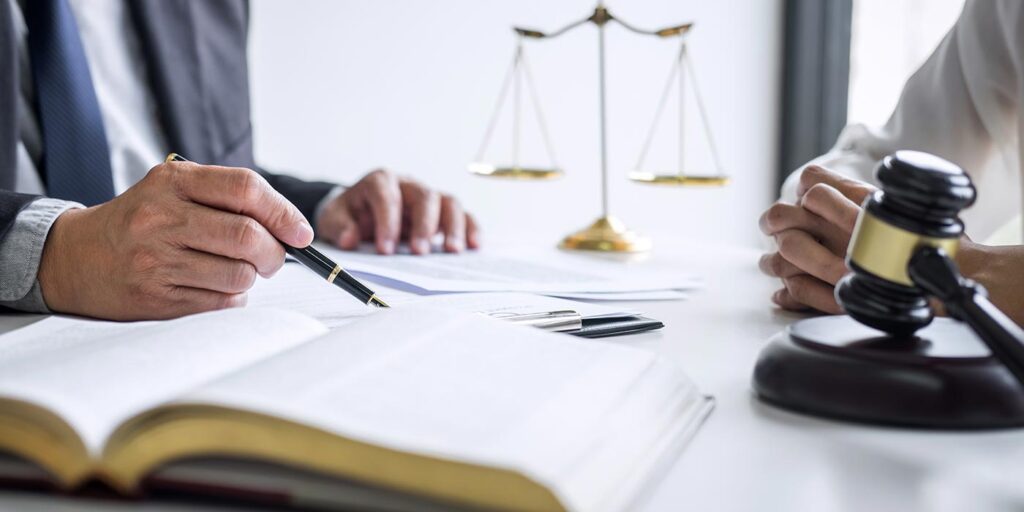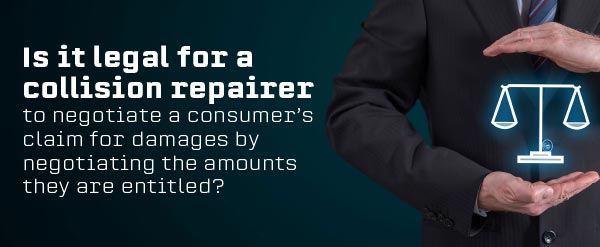Let me begin with the following caveat: I am not an attorney, and the following article is not intended to provide legal opinions. Other than my commentary, the information referenced in this article is available online to anyone seeking it. As business owners, it’s up to you to check that regulations are current, as they often get changed, modified or removed altogether and are no longer applicable.
A Reoccurring Fact
During my decades of speaking with collision repairers across the country, one reoccurring fact I find is that most shop owners and managers are unaware of the rules and regulations that govern their business in the state(s) they operate.
Other respected professionals such as attorneys, medical practitioners, construction contractors, accountants and plumbers know the rules and regulations that govern their business activities, especially where their services involve serving the public.
The purpose of state regulations and laws is twofold and intended to safeguard the public against fraudulent auto repair practices, thereby enhancing public confidence in legitimate auto repair facilities and mechanics. What’s good for the consumer is good for the image of the various automotive repair industries, including the collision repair industry.
One can be assured that insurers not only know the rules that apply to their business practices in the states they operate, but they also know those of collision repairers and other industries that may become involved in claim settlements — and have learned to take full advantage of their weaknesses.
Good Business
It’s simply good business for any business owner to know the state rules and regulations that govern their businesses. In the collision repair industry, it’s also important for shop owners/managers to know the rules and regulations that govern insurers and their claims practices. This will enable repairers to safeguard their interests in addition to their customers’ and community members’.
One of the first things I do when accepting a new client is review the repair authorization and help him or her review the state’s rules and regulations to ensure that person is in full compliance. I then assist in crafting a comprehensive repair authorization/contract outlining the client’s rights and the customer’s rights and obligations that the client can then take to his or her legal counsel for review.
When performing this research, I often find nuggets of information that are often found to be very valuable to the repairer. The following are examples of such finds and how they may benefit the repairer, either in enhancing the shop’s practices and/or avoiding potential infractions and liabilities while instilling accountability on others.
Negotiation
One of my coaching clients in North Carolina, while doing his own research, found the following definition and description:
§ 58-1-10
Contract of insurance
(N.C. state statutes)
A contract of insurance is an agreement by which the insurer is bound to pay money or its equivalent or to do some act of value to the insured upon, and as an indemnity or reimbursement for the destruction, loss or injury of something in which the other party has an interest.
(1899, c. 54, s. 2; Rev., s. 4679; C.S., s. 6262; 1945, c. 383)
My client then sent this and other statutes to his attorney to get a professional understanding and he was provided the following:
“A repair contract is a legally binding contract, and the negotiation of such a contract by a third-party (non-contracting party), of the terms and benefits derived from the contract, could be construed as practicing law. The insurance company does not have a legal right to negotiate a consumer’s repair contract (a contract which the insurer is not a party), and if an insurer does so, they could be charged with practicing law without a license. Additionally, insurance appraisers/adjusters are specifically prohibited from practicing law.
“Furthermore, since the contract of insurance (policy) is a legal contract, the negotiation of the terms of the contract (by “negotiating” how much the insurance company will pay for the repairs with the shop) could be construed as practicing law as well.”
So, the question begs to be answered: Is it legal for a collision repairer to negotiate consumers’ claims for damages by negotiating the amounts they are entitled? It’s common for the insurer to negotiate the repair costs downward to a lesser amount than the repairer has determined. When negotiating, is the shop negotiating away the consumer’s rightful entitlements? Is this legal, considering the shop may benefit from a relationship between the shop and the insurer? Does this place the consumer in jeopardy and potential harm? Who is looking out for the consumer’s best interest in such a relationship?
As one can see, there may be boundaries and potential ramifications hidden in such statutes and, as such, repairers should be intent on finding all they can to ensure they stay within their lanes and don’t get into trouble. It also emphasizes how not being aware of such information can enable insurers to go off the rails and breach state and federal regulations — all too often without the least bit of accountability.
Lienholder of Record
The following is a statute I received from another client in Louisiana regarding the rights of lienholders in his state:
Louisiana Revised Statutes Tit. 32, § 1720.1. Surrender of stored vehicle to lienholder
Notwithstanding any other provision of law to the contrary, if a vehicle placed in a storage facility or a repair or body shop is encumbered by a lien, and the storage or repair or body shop operator mails the notification required by R.S. 32:1720, the storage or repair or body shop operator shall surrender possession of the vehicle to the holder of any lien on the vehicle on behalf of the registered owner. The holder of any lien on the vehicle is the holder shown on the records of the office of motor vehicles. No such surrender shall occur until the secured party makes a complete payment of the towing and storage charges and executes a hold harmless agreement, agreeing to indemnify the storage or repair or body shop operator for surrender of the vehicle to the secured party.
In some states, a lienholder of record (e.g. a bank, credit union, financing dealership, etc.) who has a recorded lien on a vehicle has a priority lien and can take possession of a vehicle without paying for the repairer’s services. My interpretation of the Louisiana statute is, if the repairer does what it should by providing proper notice when required, the recorded lienholder may indeed take possession of the vehicle but only after making full payment for the repairer’s existing charges.
Ignorance of the Law
In some instances, I’ve seen lienholders, insurers and even attorneys try to misuse, misquote and/or provide misinterpretations of state statutes, laws and/or regulations in an effort to achieve their desired results.
As an example, I was involved in a situation back in 2005 when I had an insurer abandon what became a total loss vehicle at my shop. This was a repair that was well under way where a supplement dispute arose between my shop and our customer’s insurer (first party). After considerable efforts — and the matter remaining unresolved for over a year — I filed a non-adversarial lawsuit against the vehicle’s owner (our customer) for payment of our charges, which he believed we were due. It was well over $20,000 for services, parts and storage charges — quite a sum at that time.
One day, I received a call from my attorney stating that Florida has a lien statute (713.585 — Enforcement of lien by sale of motor vehicle) which states that the service provider (repairer, storage facility, etc.) must send a “notice of lien” by certified mail to those who have interest in the vehicle within seven business days from the time storage charges begin. He asked if I had the certified mail receipt showing it had been received. I advised I did not, as I was unaware of having to do so and hadn’t sent a notice. The result? We ended up receiving only seven days of storage and the other charges, which totaled around $5,000. Lesson learned!
Trust but Verify
In another similar situation of a disputed total loss billing (where I followed the lessons I had previously learned), I received a phone call from an insurer’s legal counsel to advise me that, according to Florida statutes, the most I could charge for storage was $15 per day (versus $45) and that was all the insurer would pay. And, I had 48 hours to agree or they would seek punitive damages for our “unfair and deceptive business practice” by overcharging. I asked him for the statute number he was referring to, and he said, “Do your own research; you have 48 hours.” And he abruptly hung up on me.
So I did do my research and found that he had attempted to employ information from Florida statutes specifically for towing and storage facilities which are applicable to the county’s rotation program whereby participating tow and recovery companies must agree to and abide by specific rates for their services when involved in a non-consensual service call (i.e. accident, recovered thefts, police impound, etc.) — which had no bearing on automotive service facilities. It was apparent the attorney had attempted to apply erroneous and non-factual information to get a lower settlement. I never spoke to that attorney again, although I wish I could have. The insurer ended up paying our entire billing on behalf of its policyholder and did so within the 48 hours I demanded.
It would have been easy to be intimidated and believe the attorney. After all, he’s an attorney, an “officer of the court” and a licensed law professional who surely wouldn’t lie, let alone make such an error, right? If I hadn’t done my research, my company would have lost about $2,500 in legitimate fees — and likely even more would have been lost in the following years had I not done my due diligence as a business owner. Note: I’ve had several coaching clients in different states who’ve had similar attempts made upon them regarding this same issue — making you wonder if this isn’t in a standard playbook of some kind.
Summary
My point is simple: As business owners and managers, we must become familiar with the laws that govern our businesses within our communities and states and know how and where to find them when needed. We also need to stay abreast of any changes that can and do take place from year to year during legislative sessions. It would also behoove us to know what regulations and statutes govern others we deal with on a regular basis to best serve our companies, employees and customers.
As I’ve stated many times in the past, most body shops are operated by ex-bodymen, and the times dictate that they need to become businesspeople with automotive collision repair centers if they hope to succeed. It’s time to go mining.
















